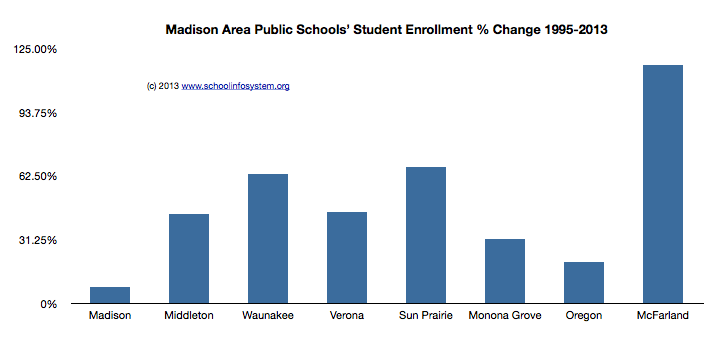Rick Esenberg, via a kind reader’s email:
Whether or not he is right, we are left with, again, with the very philosophical divide that I identified. Mr. Hughes thinks that centralized and collective decision-making will more properly value diversity (as he defines it) and make better educational choices for children than their parents will.
Of course to describe a philosophical divide does not tell us who has the better of the argument. Mr. Hughes defends his position by relying on a 2007 “study” by the Wisconsin Policy Research Institute which, strictly speaking, was not a study at all and had more to do with the impact of choice on public schools than its value to the families who participate in the program.
The 2007 WPRI publication collected no data on what was actually happening in Milwaukee. It simply took a national data base on the educational involvement of families and extrapolated it to Milwaukee based on the socioeconomic characteristics of Milwaukee families. It was, strictly speaking, nothing more than a calculation. If low income and minority families in Milwaukee behave like low income and minority families nationally, the calculation showed, then, based on certain assumptions, very few would engage in informed decision-making regarding their children’s education.
It was an interesting and thought provoking exercise but one with an obvious limitation. It is not at all clear that national findings would extend to a city with a relatively longstanding and actively promoted choice program. It is possible that the existence of a greater array of educational choices would change the incentives and capacity of parents to engage in the informed and engaged decision-making that would otherwise not happen.
Beyond that, the fact that only a subset of families will exercise a choice tells us precisely nothing about whether they ought to have the opportunity to make one – unless you entertain a presumption against individual choice and a diversity of alternatives in education.
Mr. Hughes argues that education is an “experience good” which is a fancy way of saying that it is something that consumers have a difficult time evaluating before deciding whether to buy it. But, again, the extent to which you think something is that type of good (many things are difficult to be sure about before you try them) and whether, having decided it is, you think that people should have someone else choose for them reflects very philosophical divide I’m concerned with.
“We know best” has long been associated with parts of Madison’s K-12 community, despite long term, disastrous reading scores and spending twice the national average per student.
Background: “The notion that parents inherently know what school is best for their kids is an example of conservative magical thinking.”; “For whatever reason, parents as a group tend to undervalue the benefits of diversity in the public schools….”.
It would certainly be useful to spend a bit of time learning about Milwaukee’s experiences, positive and negative with a far more open k-12 climate. The results of Madison’s insular, non-diverse approach are an embarrassment to students, citizens, taxpayers and employers. 